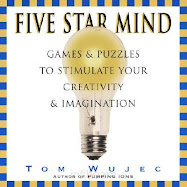I have been working on formulating a thought for several years. (I am a little slow) I know that I haven't fully developed it and I certainly do not think I have any answers to the questions this thought brings about, but I do think it is something that is worth thinking about.
So here it is, I believe it is possible that the Church in our culture has lost sight of who God is. I believe the Church in America today sees God through a different lens than previous generations and differently than those in other cultures today. Is it possible that we have Americanized our view of God to the extent that what we see is fundamentally different than the God of the Bible? And what would be the result of not seeing God the way He really is? Statistics from a Barna Group study indicate that over the past ten years not one county in the United States has increased in church attendance. That's alarming. Are we worshipping the one true God, or have we shaped God into a comfortable form which doesn't mess up our lives? I'm not sure the answer to these questions, but I do know that this problem is not specific to us.
The Old Testament shows us many examples of those who should know God, but somehow lost sight of Him. Numbers 14 records the Israelites grumbling against God because of the reports they had gotten from the scouts who went over into the promised land and reported it to be a land full of fertile ground, a land that "flowed with milk and honey," but also people who were strong.
"That night all the people of the community raised their voices and wept aloud. All the Israelites grumbled against Moses and Aaron, and the whole assembly said to them, 'If only we had died in Egypt! Or in the desert! Why is the Lord bringing us to this land only to let us fall by the sword? Our wives and children will be taken as plunder. Wouldn't it be better for us to go back to Egypt?'"
These people should be acutely aware of God and who He is and what He is capable of, but somehow they lost sight of Him. Did they forget where they had come from? Did they forget that God promised to their ancestor Abraham that he and his descendants would be blessed? That Abraham had been given a son in his old age and that this son Issac was the father of Jacob and Esau? What about how Jacob had tricked Esau into giving up the blessing of his father? And how after Issac blessed him Jacob wrestled with God and God changed his name to Israel. Israel had twelve sons whose descendants later became the twelve tribes of the nation of Israel. These are the same tribes who in Numbers 14 are grumbling against God. These sons of Israel sold one of the brothers to some merchants who in turn sold Joseph to Potipher an Egyptian. Had they forgotten that God blessed Joseph to the degree that he became ruler of all of Egypt, second only to Pharoah? And how years later after the rulers of Egypt had forgotten what Joseph had done for them they put the Israelites into slavery in Egypt. So God raised up a leader named Moses who confronted Pharoah and demanded he let the Israelites go. Had they forgotten the plagues God sent on Egypt? Had they forgotten the parting of the Red Sea and the victory God provided there againt the armies of Egypt? Could they have forgotten the way God led them through the wilderness? How God provided food everyday from nowhere? Could they not see the cloud during the day and the fire at night that went before them? After all this, here they stand on the banks of the Jordan River, looking over into the land that God had promised and they still doubt. They lost sight of Him. They only could see the present. They lost sight of their own history and didn't have enough faith to see their future. And are we any different?
Why do we struggle? Why do we question? Why can't we see things the way they really are?
We lose sight of God and who He is.
All powerful.
Ever present.
Knowing everything.
God.
Creator of the universe.
Giver of life.
Provider.
Holy.
God.
Merciful.
Full of grace.
Love.
God.
Wednesday, February 14, 2007
Subscribe to:
Post Comments (Atom)



No comments:
Post a Comment